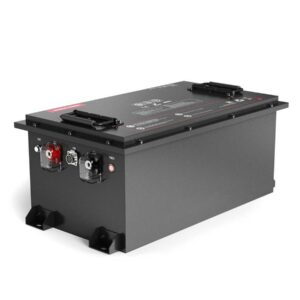
Is it okay to throw away alkaline batteries?
In most U.S. states, standard single-use alkaline batteries (e.g., AA, AAA) manufactured after 1996 can be safely disposed of in regular household trash. Modern alkaline batteries contain negligible mercury due to the Mercury-Containing Battery Management Act, eliminating the need for specialized recycling in non-regulated areas. However, California and some municipalities classify them as hazardous waste, requiring designated recycling. For bulk disposal or eco-conscious practices, recycling via certified facilities remains recommended.
How to Safely Dispose of and Recycle Car Batteries
Why are modern alkaline batteries safer to discard?
Post-1996 alkaline batteries use zinc-manganese chemistry without mercury additives, reducing toxicity. Regulatory changes eliminated heavy metals, making landfill disposal low-risk in most regions. Pro Tip: Check local guidelines—California mandates recycling even for mercury-free batteries.

Prior to 1996, alkaline batteries contained up to 0.025% mercury to prevent gas buildup. Post-regulation, manufacturers replaced mercury with alternative alloys and improved sealing. Today’s batteries meet EPA toxicity thresholds for non-hazardous waste. For example, Energizer’s eco-friendly AA cells use 0% mercury. But what if you’re unsure? Always verify local rules—some cities like San Francisco require separate battery recycling regardless of type. Practically speaking, small household quantities pose minimal environmental risk, but bulk disposal (e.g., 50+ batteries) should use recycling programs.
Where is alkaline battery recycling mandatory?
California, New York City, and Minnesota enforce alkaline battery recycling. These regions classify them as universal hazardous waste due to potassium hydroxide electrolyte risks.
California’s Universal Waste Rule treats all batteries as hazardous, requiring drop-off at authorized centers. Minnesota’s 2009 Battery Recycling Act prohibits landfill disposal. New York City mandates recycling for any battery over 9V. For example, NYC residents must take AA/AAA batteries to retailers like Best Buy or specialized facilities. Pro Tip: Use Call2Recycle.org’s locator for compliant disposal sites. Beyond legal requirements, recycling recovers steel (25% of battery weight) and zinc for reuse. Transitioning to recycling also aligns with circular economy principles—90% of battery materials can be repurposed.
| State | Recycling Law | Penalty for Non-Compliance |
|---|---|---|
| California | Universal Waste Rule | Fines up to $25,000/day |
| Minnesota | 2009 Battery Act | $100 per violation |
How to identify recyclable alkaline batteries?
Look for the “Hg-free” label or “0% mercury” claims. Batteries produced after 1996 typically meet this standard. Cross-check manufacturing dates if visible.
Most modern alkaline batteries display recycling symbols (♻) with “ALKALINE” printed on the casing. Brands like Duracell and Energizer explicitly state “no mercury added.” For example, Duracell Coppertop AA cells have “0% Hg” imprints. But what if labels are worn? Assume mercury-free status post-1996 unless from industrial/medical equipment. Pro Tip: Use a magnet—alkaline batteries have steel shells, making them detectable in recycling streams. Transitional note: Even recyclable batteries benefit from segregated collection to prevent landfill leaching of potassium hydroxide.
What risks remain when trashing alkaline batteries?
Landfilled alkaline batteries may leak potassium hydroxide, a corrosive electrolyte that can contaminate soil. Damaged casings accelerate leaks, especially in humid environments.
While non-toxic metals (zinc, manganese) dominate composition, potassium hydroxide has a pH of 13.5—comparable to drain cleaners. In landfills, this electrolyte can react with moisture, creating conductive pathways that degrade nearby materials. For example, a ruptured 9V battery in trash may corrode metal containers. Pro Tip: Tape battery terminals with non-conductive tape before disposal to prevent short-circuit fires. Beyond chemical risks, improper disposal wastes recoverable materials—recycling reclaims 99% of steel and zinc.
Battery Expert Insight
FAQs
Can I recycle alkaline batteries with household recycling?
No—curbside programs rarely accept batteries. Use certified drop-off locations like Home Depot or BatteryPlus stores.
Do lithium batteries have different disposal rules?
Yes—lithium batteries (e.g., 18650, CR2032) are always hazardous due to fire risks. Never trash them; use specialized recycling.
